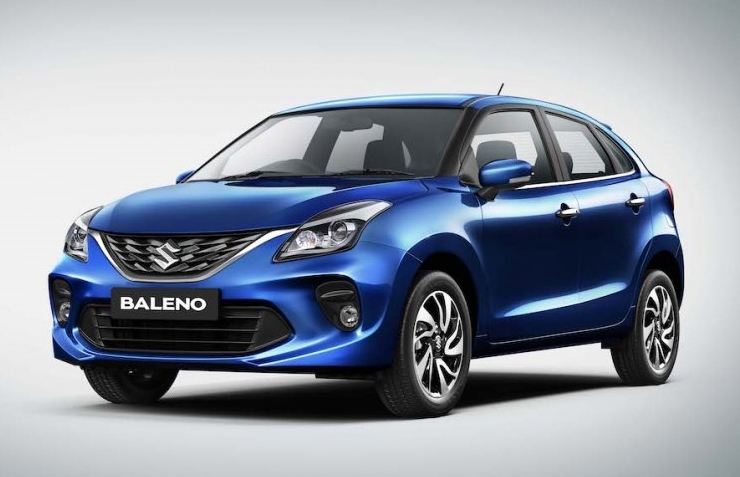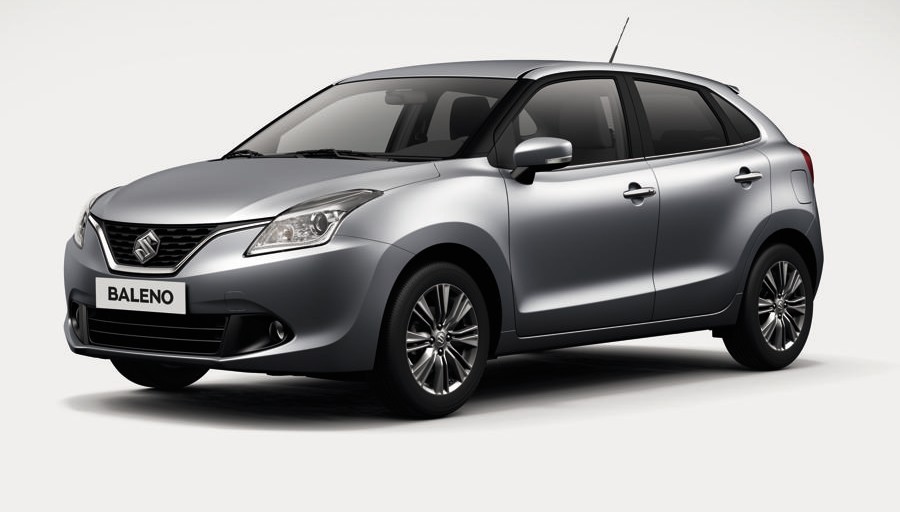
The Suzuki Baleno, known for its sporty looks, fuel efficiency, and practicality, has gained a loyal following worldwide. However, not everyone is familiar with the nitty-gritty details of its wheels. Proper wheel specifications are essential for safety, handling, and overall vehicle performance. So, let’s dive into the exciting world of Suzuki Baleno wheel specs!
Contents
Suzuki Baleno Wheel Specifications
Before we delve into the specific details, let’s understand the essential terminologies related to wheel specifications:
- Rim Size: The diameter of the wheel from one end to the other, measured in inches.
- PCD (Pitch Circle Diameter): The diameter of the circle formed by the bolts on the wheel’s hub.
- Thread Size: The diameter and pitch of the wheel’s lug nuts or bolts.
- Offset: The distance between the wheel’s mounting surface and its centerline. It can be positive, negative, or zero.
- Bolt Pattern: The number of bolts on the wheel and the distance between them, represented in a numerical format (e.g., 5×114.3).
- Lug Nut Torque Specs: The recommended tightening torque for the lug nuts to ensure proper wheel attachment and safety.
Now, let’s explore these specifications in more detail.

Rim Size
The Suzuki Baleno comes with various rim size options to cater to different preferences and trims. The most common rim sizes for the Baleno are 15 inches and 16 inches. However, some trims may offer larger or smaller options. A larger rim size can enhance the car’s appearance and improve handling, but it may also impact ride comfort and increase the risk of damage on rough roads.
PCD (Pitch Circle Diameter)
The PCD refers to the diameter of the circle that passes through the center of each wheel’s bolt holes. It is crucial to choose wheels with the correct PCD to ensure a proper fit. The Suzuki Baleno typically has a 4×100 PCD, but it is always recommended to verify the PCD for your specific trim and generation.
Thread Size
Thread size is an important aspect when it comes to lug nuts or bolts, as it determines how well they fit into the wheel hub. The Baleno usually has a thread size of M12x1.25, but variations might exist, especially in different regions.
Offset
The offset is a critical factor that affects both the car’s appearance and its handling characteristics. It determines how far the wheel’s mounting surface is from the centerline. A positive offset means the mounting surface is closer to the outside edge, while a negative offset means it’s closer to the inside edge. Balancing offset with the right rim size ensures proper clearance from the car’s suspension components and body.
Bolt Pattern
The bolt pattern is represented by the number of bolts and the distance between them. For instance, a 5×114.3 bolt pattern means the wheel has 5 bolts, and they are spaced 114.3 millimeters apart from each other. Different Baleno trims and generations may have varying bolt patterns, so always verify this information before purchasing new wheels.
Lug Nut Torque Specs
Properly tightening the lug nuts is vital for your safety and the longevity of the wheels. Under-tightened lug nuts can lead to wheel wobbling and potential detachment, while over-tightening can cause damage to the threads. The recommended lug nut torque specs for the Suzuki Baleno usually range between 75-85 lb-ft, but it is essential to consult your owner’s manual or a trusted mechanic for the precise value.
Tire Size and Tire Pressure
Equally important to the wheel specifications are the tire size and tire pressure. The right combination of these factors ensures optimal grip, ride comfort, and fuel efficiency.
Tire Size Recommendations
The Suzuki Baleno’s recommended tire size generally falls within the range of 185/55R15 for the 15-inch rims and 185/50R16 for the 16-inch rims. However, some trims might have different tire size recommendations. Stick to these recommendations to maintain the intended performance and safety of your Baleno.
Correct Tire Pressure
Proper tire pressure is crucial for tire longevity, fuel efficiency, and safety. The recommended tire pressure for the Suzuki Baleno usually ranges between 32-36 psi (pounds per square inch) for the front and rear tires. However, always consult your owner’s manual or the tire placard on the driver’s side door jamb for the precise tire pressure values.
Suzuki Baleno Wheel Specs by Trim and Generation
The Suzuki Baleno has gone through different generations and has seen several updates over the years. Wheel specifications can vary between trims and generations, so let’s take a closer look at them:
First Generation (1995-2002)
| Trim Level | Rim Size (Inches) | PCD (mm) | Thread Size | Offset (mm) | Bolt Pattern | Lug Nut Torque (lb-ft) |
|---|---|---|---|---|---|---|
| GLX | 14 | 4×100 | M12x1.25 | +45 | 4×100 | 80 |
| GS | 14 | 4×100 | M12x1.25 | +45 | 4×100 | 80 |
| GSX | 14 | 4×100 | M12x1.25 | +45 | 4×100 | 80 |
| GTX | 14 | 4×100 | M12x1.25 | +45 | 4×100 | 80 |
Second Generation (2015-2021)
| Trim Level | Rim Size (Inches) | PCD (mm) | Thread Size | Offset (mm) | Bolt Pattern | Lug Nut Torque (lb-ft) |
|---|---|---|---|---|---|---|
| Sigma | 15 | 4×100 | M12x1.25 | +43 | 4×100 | 80 |
| Delta | 15 | 4×100 | M12x1.25 | +43 | 4×100 | 80 |
| Zeta | 16 | 4×100 | M12x1.25 | +40 | 4×100 | 80 |
| Alpha | 16 | 4×100 | M12x1.25 | +40 | 4×100 | 80 |
Third Generation (2022-present)
| Trim Level | Rim Size (Inches) | PCD (mm) | Thread Size | Offset (mm) | Bolt Pattern | Lug Nut Torque (lb-ft) |
|---|---|---|---|---|---|---|
| LX | 15 | 4×100 | M12x1.25 | +45 | 4×100 | 80 |
| EX | 16 | 4×100 | M12x1.25 | +40 | 4×100 | 80 |
| Sport | 16 | 4×100 | M12x1.25 | +40 | 4×100 | 80 |
It is essential to remember that the information presented in the tables is based on general specifications. However, manufacturers might introduce variations or updates to specific trims and generations, so always double-check with your vehicle’s documentation or consult a trusted automotive expert for the most accurate information.
Customizing Your Suzuki Baleno Wheels
As a proud Suzuki Baleno owner, you might consider customizing your wheels to reflect your personality and elevate your car’s aesthetics. Custom wheels not only enhance the visual appeal of your Baleno but can also improve its performance, especially when paired with high-quality tires.
Here are some tips to consider when customizing your Suzuki Baleno wheels:
- Choose the Right Rim Design: Select a rim design that complements the Baleno’s body style. Whether you prefer classic spoke wheels or contemporary multi-spoke designs, ensure they are available in the correct size and have a compatible bolt pattern.
- Opt for High-Quality Materials: Invest in durable and lightweight materials, such as aluminum alloy, for improved performance and fuel efficiency. Avoid low-quality materials that may compromise safety and longevity.
- Consider Wheel Finish: The finish of your wheels can significantly impact your car’s appearance. Options include polished, painted, or machined finishes. Choose a finish that matches your style and complements the Baleno’s color.
- Respect the Wheel Size: When upsizing or downsizing your wheels, be mindful of maintaining the correct overall tire diameter to prevent speedometer and handling issues. Consult an expert to find the right balance between style and performance.
- Quality Tires are Vital: Remember that your tires play a crucial role in your car’s safety and performance. Invest in high-quality tires that suit your driving habits and local weather conditions.
- Get Professional Installation: Ensure that your new custom wheels are installed by professionals who understand the Baleno’s specifications and can guarantee a secure fit.
